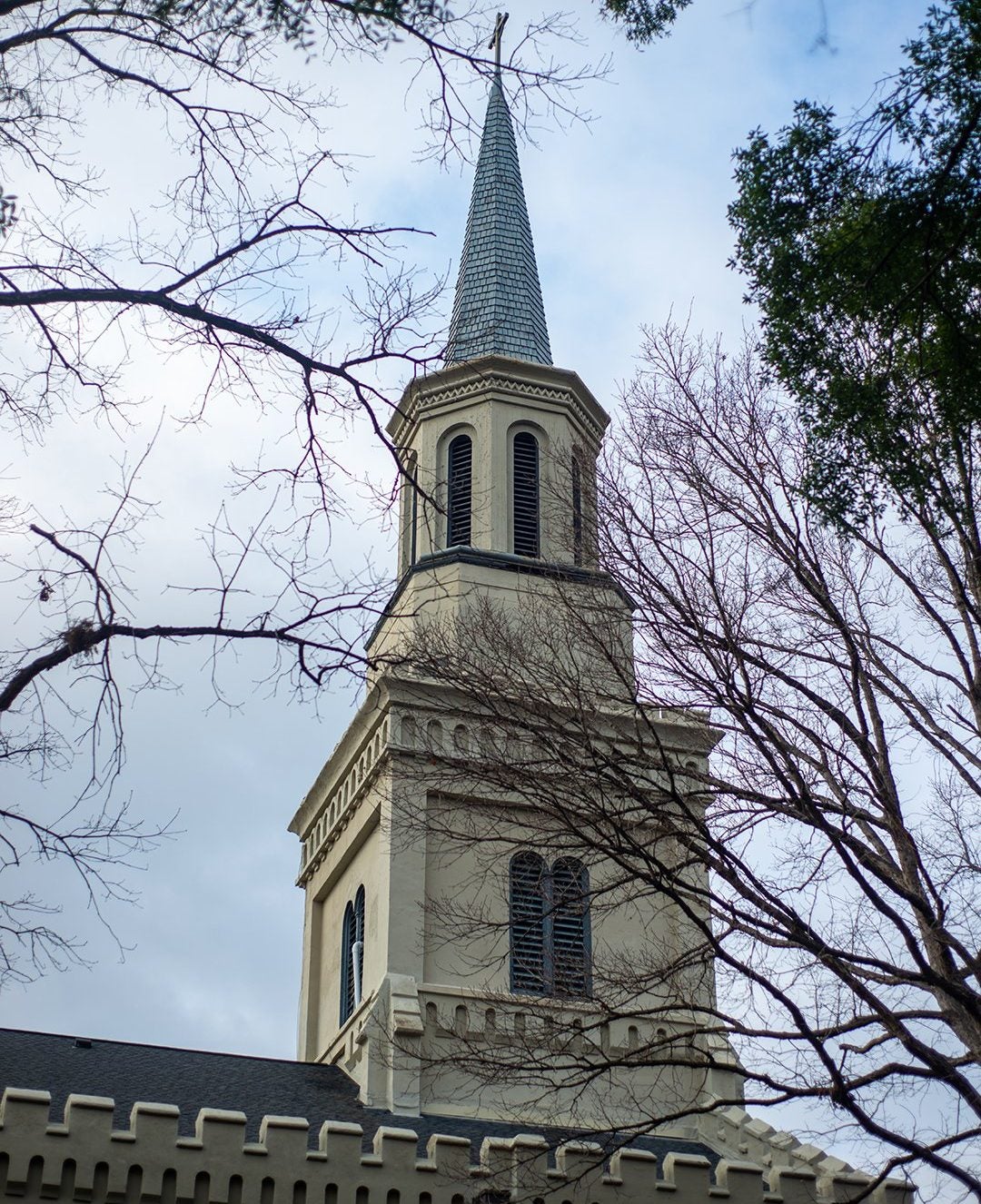For months, the numbers 911 had stood out to Rhonda Matthews. She felt like they were a call to prayer, but she didn’t know what for.
Matthews, the lead pastor at New Life Church, has led prayer at 11 a.m. Tuesdays at the church almost since it began more than 25 years ago. And that particular Tuesday, her phone started ringing early. People were seeing the news; people were afraid.
That Tuesday morning, she saw more people than usual at prayer.
“It was pure evil,” she said. “I had to comfort a lot of people.”
MORE: 9/11 Retrospective: Being Muslim in America Is Different Now From 2001
Rev. Ted Clarkson, interim rector at Church of the Good Shepherd, remembers the day clearly. It was before he was clergy, still a practicing lawyer at the time. He recalls watching as the news came in, lawyers and office staff affixed to the images from the television, from District of Columbia and New York. His wife came down that morning to join him.
“It was not a time to be alone,” said Clarkson. “I remember being so thankful that our church held a service that very afternoon.”
Matthews was seeing, and Clarkson was experiencing, firsthand one of the first explosive ripple effects of Sept. 11, 2001: a paroxysm of mourning, yearning and spiritual seeking.
In the days that followed, prayer was held at New Life multiple times as people tried to process what they’d seen and heard.
[adrotate banner=”54″]
“People had a lot of different emotions,” said Matthews.
And they knew they didn’t have the answers for what they’d experienced. They sought to find spiritual meaning where emotional and mental answers didn’t satisfy.
“We all needed the comfort of our God and the knowledge that God is ultimately in charge,” said Clarkson. “Our priest read from the book of Job, one of the lessons of which is that we as humans will not always understand why something happens, but we still must trust in God.”
The Pew Research Center noted an uptick in prayer and the significance of religion in Americans’ lives as early as November 2001. A survey the center conducted found that 69 % of Americans said they prayed more immediately after the terror attacks, Sept. 13 – 17. While that number decreased to 44 % by November, 16 % said they were attending religious services more than they were before the attacks.
The struggle of people to comprehend the gravity, tragedy and wider implications of being a person of faith in America seemed to give way not only to more intense seeking, but more genuine connections with their faith, and thus with one another.
Matthews remembers. In the weeks that followed, she saw something beautiful happen.
“I saw a spirit of unity in the nation and in the body of Christ,” she said. “I saw people genuinely caring about their brother and their sister no matter what their background.”
The surge in faith among Americans was significant but did not sustain, according to statistics. But in the 20 years since the attacks, that upwelling remains telling.
“I believe that this is a time when our faith and traditions are more important than ever,” said Rabbi David Sirull of Adas Yeshurun Synagogue.
Reflection upon Sept. 11 and the swelling of faith that came after seems to show how faith traditions and spirituality persist not only as means of comfort, reflection and even community but also insight amid devastating times.
[adrotate banner=”19″]
“According to Jewish tradition, each human life is considered as a whole world,” said Sirull. “Whether we’re talking about the 3,000 innocent souls lost on 9/11, the 6 million Jewish victims who were murdered in the Holocaust or a friend who recently passed away due to COVID, each life is sacred, created in God’s image and, therefore, a tragic loss in every case.”
Clarkson says that what it means to be a person of faith did not change after Sept. 11, but perhaps changed, or at least affected, how some may have understood what faith is.
“I believe that some have come to faith and others have left faith depending on their understanding of ‘the faith,’” said Clarkson. “For those who believed that persons of faith are protected from all evil, their faith has been challenged if not destroyed by the death of so many innocents. For those who believe that God will be with people of faith, especially when there is suffering, those persons have probably had their faith strengthened.”
MORE: 9/11 Retrospective: Retired Public Affairs Officer Remembers Response
Clarkson had recollected that his priest, during the service held at his church on Sept. 11, read from the Book of Job, 42:2.
“I know that you can do all things, and that no purpose of yours can be thwarted.”
Looking back at that day also evokes for Clarkson Psalm 121:1-2.
“I lift up my eyes to the hills—from where will my help com? My help comes from the Lord, who made heaven and earth.”
Features editor Charmain Z. Brackett contributed to this story.
Skyler Q. Andrews is a staff reporter covering Columbia County with The Augusta Press. Reach him at skyler@theaugustapress.com.
[adrotate banner=”51″]













